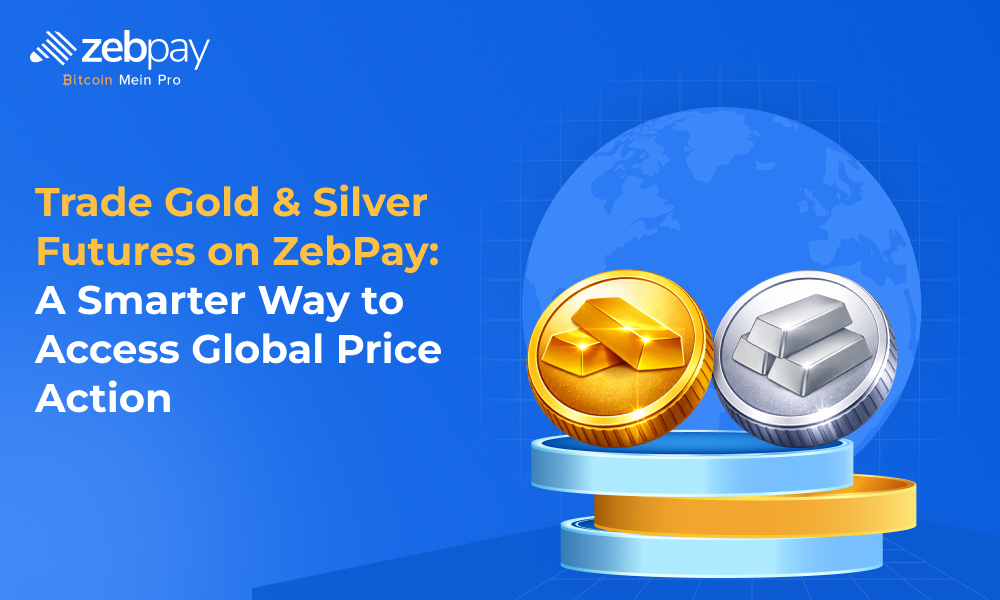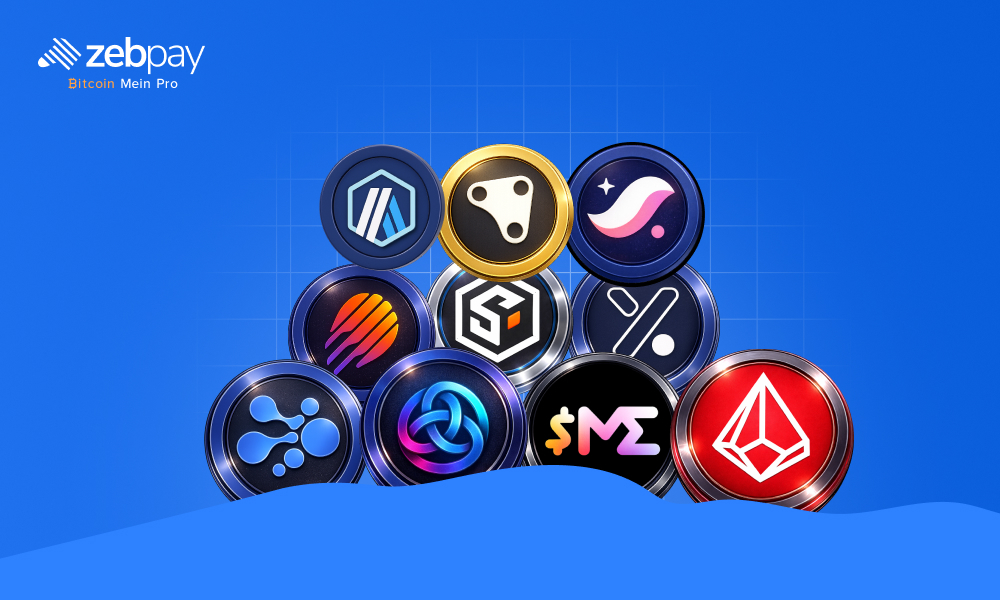When crypto was first introduced, it offered a fresh perspective on money. With this innovative form of asset, a new method of storage was also needed. Unlike traditional paper money, you can’t simply slip a “Bitcoin note” into your wallet. That’s where crypto wallets come in—they provide a secure way to store your crypto and give you easy access whenever you want to use it.
Introduction To Crypto Wallet
An important thing to remember is that crypto exists on its blockchain, not physically in your wallet. Instead of holding actual crypto, your wallet stores the public and private keys that allow you to access and manage your digital assets securely.
What are private keys?
Private keys are a long sequence of characters, numbers and symbols that act as the password to your crypto account. The public key is like your username on the blockchain and is derived from the private key. Coins on the blockchain are linked to these public-private keys.
Possessing a private key gives you access to the coins linked to it. This allows you to send, receive and transfer the coins to a new address.
How Crypto Wallets Work?
Crypto wallets allow users to send, receive and store crypto tokens. As mentioned earlier, the coins exist on the blockchain and users can access these coins and perform transactions using their crypto wallets because it stores the public and private keys. To send tokens to another wallet you need to know the public key of that wallet. To receive tokens, your public key needs to be shared with the sender.
Because of advancements in technology, the process of sending and receiving is super easy. But at the same time, one needs to be careful while performing transactions as sending tokens to the wrong addresses can result in permanent loss of funds.
Why Are Crypto Wallets Important?
With cash, you can hold a note in your possession. This acts as proof of ownership of that money. When it comes to digital money, another means of ownership is required. Thus, your public and private keys act as proof that you own tokens on the blockchain.
Crypto wallets are important because they provide safe and easy access to these tokens. Keeping your wallet – and your private key – safe is crucial to ensure your crypto remains secure.
Types of Crypto Wallets
There are many ways to store your keys, from physical to software solutions.
Paper Wallets
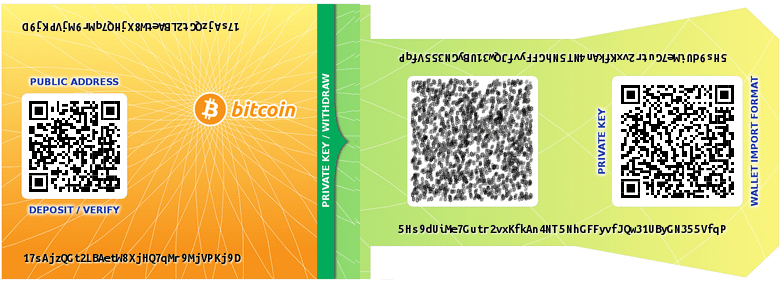
This is one of the simplest wallets to create, but can also be the hardest to use. It involves writing or printing out your private and public keys on a piece of paper and storing them safely. They are not connected to any hardware device or the internet. Paper wallets are thus highly secure.
Hardware Wallets
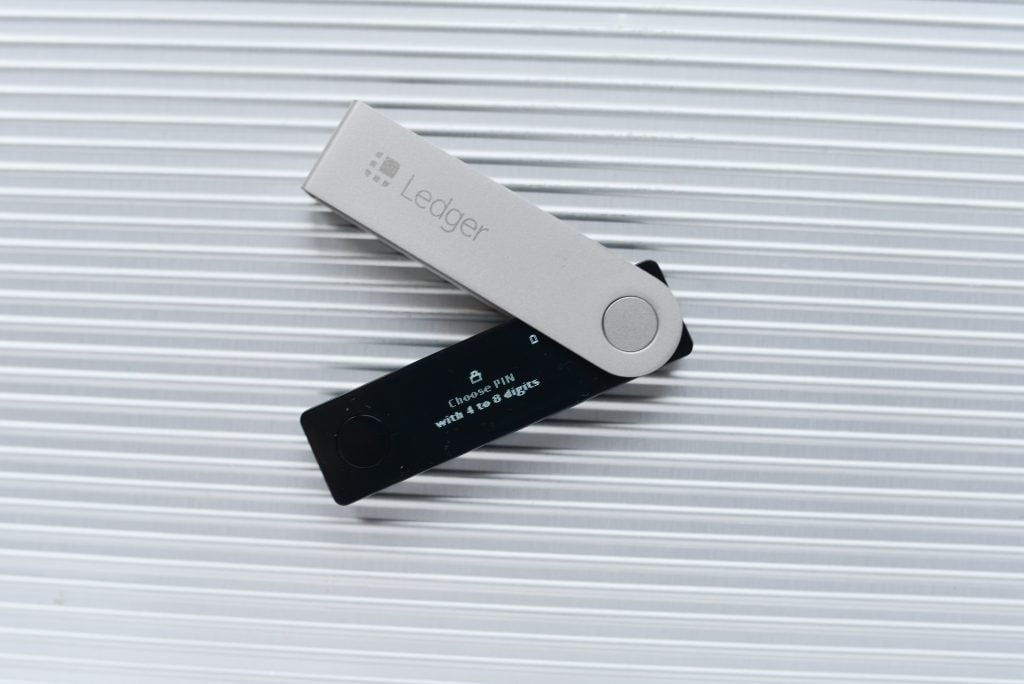
Hardware wallets are physical devices similar to USB drives. They keep your keys secure and separate from your computer until you choose to connect and use them. This creates a balance between security and accessibility that many users prefer over paper wallets.
The best hardware wallets include the Ledger Nano S and Trezor Model One.
Online Wallets
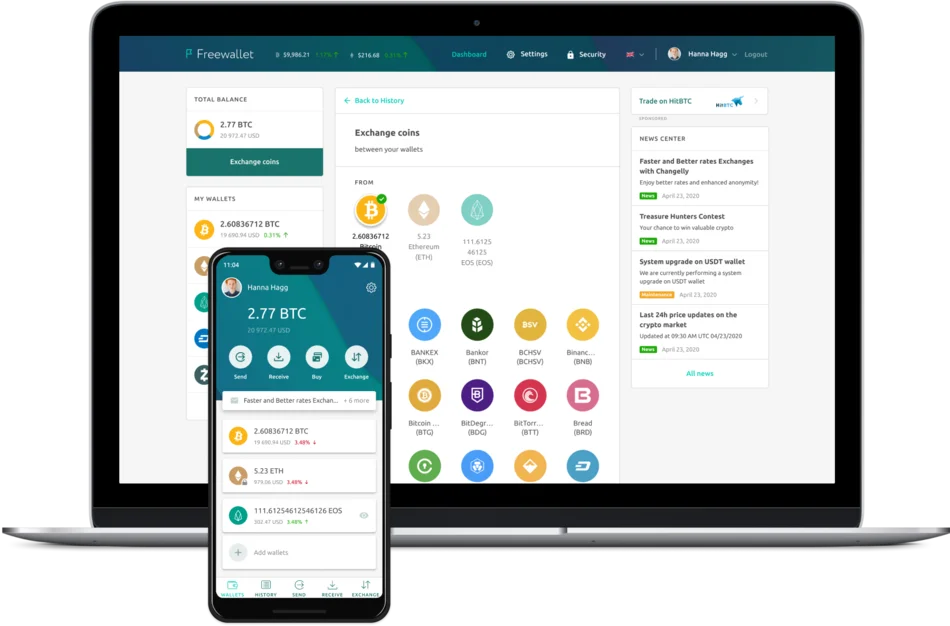
An online wallet is a software solution that stores your keys with a web application. These are intended for frequent users who need access to their wallets regularly. Online wallets make it much easier to use your crypto but are also the least secure option. The most popular online wallets are MetaMask and the Coinbase wallet.
Mobile and Desktop Wallets
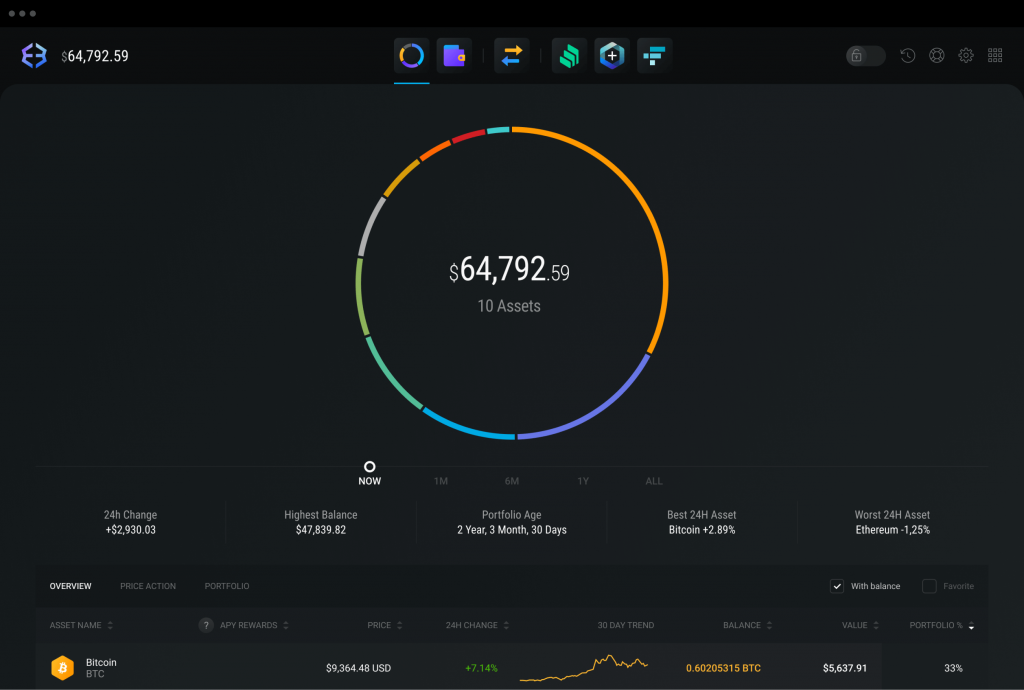
These wallets are similar to online wallets, but rather than storing your keys on an online server, they store them locally on your device. This reduces your reliance on your wallet provider and creates a balance between convenience and security.
Read more: What Is A MultiSig Wallet
How Do You Use A Crypto Wallet?
The answer to this depends on the kind of wallet you have.
- Paper Wallet – Unfortunately, you cannot use funds stored in a paper wallet directly. To use them, you have to transfer these funds to a trusted wallet on your phone or laptop. This is done by “sweeping” or “importing” the keys.
Therefore, paper wallets are not meant for easy use, but for long-term storage in a safe location.
- Hardware Wallet – Using your hardware wallet involves connecting it to a laptop or phone and setting up a PIN. This wallet will then provide you with a wallet address to send and receive transactions. Whenever you wish to transfer tokens, enter the PIN on your device. Once you are done, you can disconnect the wallet and store the device safely.
- Online/Desktop Wallets – Using such wallets is the simplest. Trying to send or receive tokens will prompt you to link a wallet. It can be linked by opening your wallet app and adding the website to linked addresses.
How To Choose a Crypto Wallet That’s Right For You?
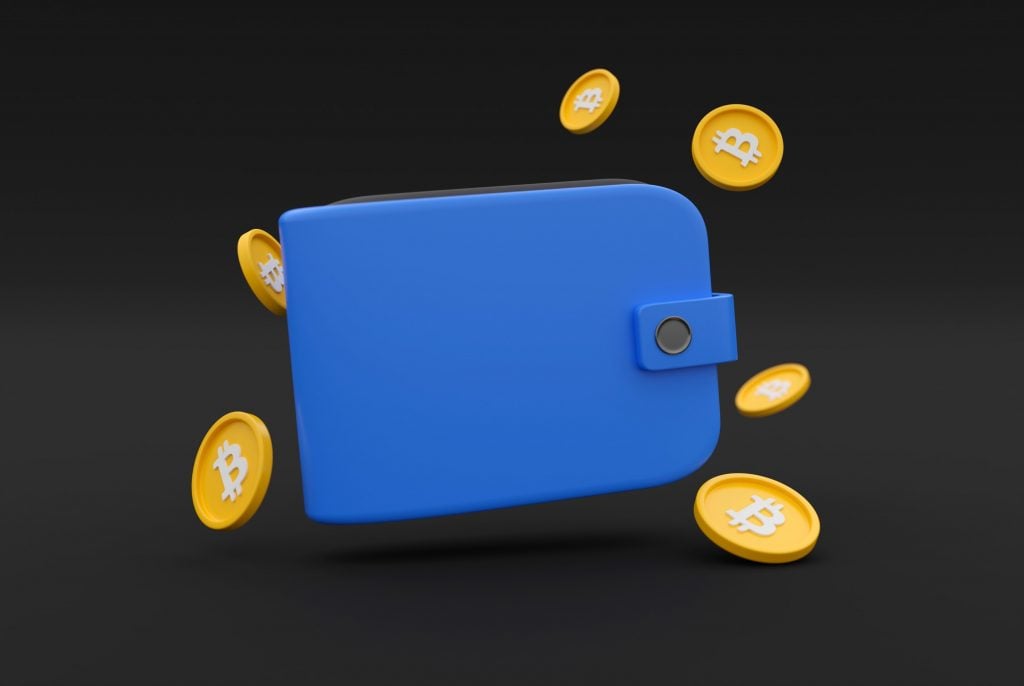
The most important factor which one needs to consider while choosing a Crypto wallet is the frequency of usage. If you are a trader then an Online wallet would be best for you since it is easier to perform transactions frequently using an online wallet. But if you are someone who wants to hold crypto for a long period, then a cold wallet would be best. It is also important to note that one needs to research well while considering a wallet and ensure that wallet security is not compromised under any circumstances.
Are Crypto Wallets Really Necessary?
If you want to store your crypto on an exchange like ZebPay, then a separate wallet is not required. ZebPay has state of the art security protocols to keep your crypto safe at all times. But, if you would like to be the custodian of your crypto, then a separate wallet is a must.
It is crucial you choose the right crypto wallet for your needs. It is also important to look into the security features of your wallet provider if you opt for an online wallet.
Best Ways to Secure Crypto Wallets
There are some key steps you can take to ensure your funds are always kept safe.
- Use Multi-factor Authentication – The MFA application of your choice sends you a unique code on your phone each time you wish to log into your account. Therefore, no one can access your wallet without also having your phone.
- Storage in a Cold Wallet – Wallets not connected to the internet are known as cold wallets. When your crypto holdings are large and you use them infrequently, it is recommended that you transfer them to a cold storage device like a hardware wallet.
- Use A VPN – A Virtual Private Network encrypts your web traffic to ensure it is protected from hackers. This is even more essential on public networks where many people may have access to your online activity.
- Don’t Share your Keys – The most important thing to keep in mind is to never share your keys or personal information with anyone. Sharing your wallet address on social media links it to your name and may be used by malicious attackers to scam you.
Read more: What is a Crypto Scam
Final Thoughts
Crypto has the potential to simplify our lives and finances with its innovative systems. However, ensuring its safety requires choosing the right wallet to suit your needs. Whether you’re looking for long-term storage away from the internet or a wallet for daily use, there’s an option for everyone. Be sure to do your research and check user reviews to make an informed decision.
Keep yourself updated with the latest crypto news on ZebPay blogs.
FAQ on What is Crypto Wallets
Is it safe to keep money in crypto wallet?
Storing crypto in a crypto wallet can provide enhanced security. However, the safety of your crypto depends on factors like wallet security practices, protection of private keys, and personal security measures. It’s important to choose a reputable wallet, use strong security practices, and stay vigilant to mitigate potential risks.
Are crypto wallets anonymous?
No, crypto wallets themselves are not anonymous. While transactions on the blockchain are pseudonymous, meaning they are associated with wallet addresses rather than personal information, it is still possible to trace transactions back to individuals using various blockchain analysis techniques.
Can I have multiple crypto wallets?
Yes, it is possible to have multiple crypto wallets. Many users opt for different wallets based on their specific needs, such as security, convenience, or managing diverse portfolios.
What happens if I lose my crypto wallet?
Losing a crypto wallet can be a daunting experience as it may result in the permanent loss of access to digital assets. It is crucial to backup wallet information and store it securely in multiple locations to mitigate the risk of losing access to funds.
Can I recover my crypto wallet if it gets stolen?
If a crypto wallet is stolen or compromised, it may be challenging to recover the lost funds. However, if users have kept a secure backup of their wallet’s private keys or recovery phrases, they may be able to regain access to their assets by restoring the wallet on a new device.
How can I ensure the security of my crypto wallet?
To enhance the security of a crypto wallet, it is essential to follow best practices such as:
1. Using hardware wallets or offline storage options for long-term asset storage.
2. Implementing strong and unique passwords for wallet access.
3. Enabling two-factor authentication for additional security layers.
4. Regularly updating wallet software to benefit from the latest security enhancements.
Are crypto wallets compatible with all crypto assets?
Crypto wallets are not universally compatible with all crypto assets. Different crypto assets and tokens operate on various blockchain networks, each with its own unique address format and technical specifications. Wallets typically support a specific range of crypto assets, so it’s essential to choose a wallet that supports the specific assets you intend to store or transact with.






